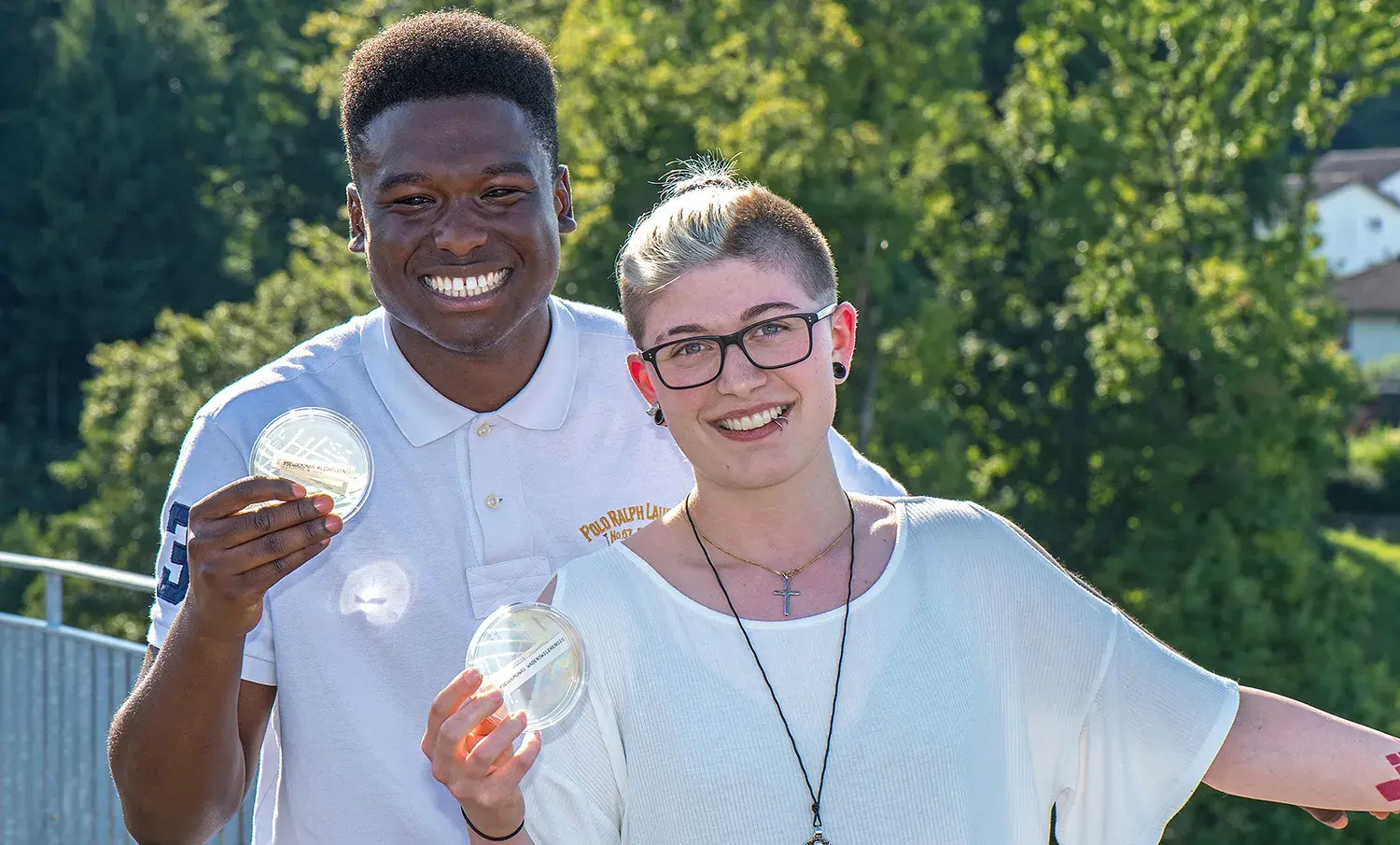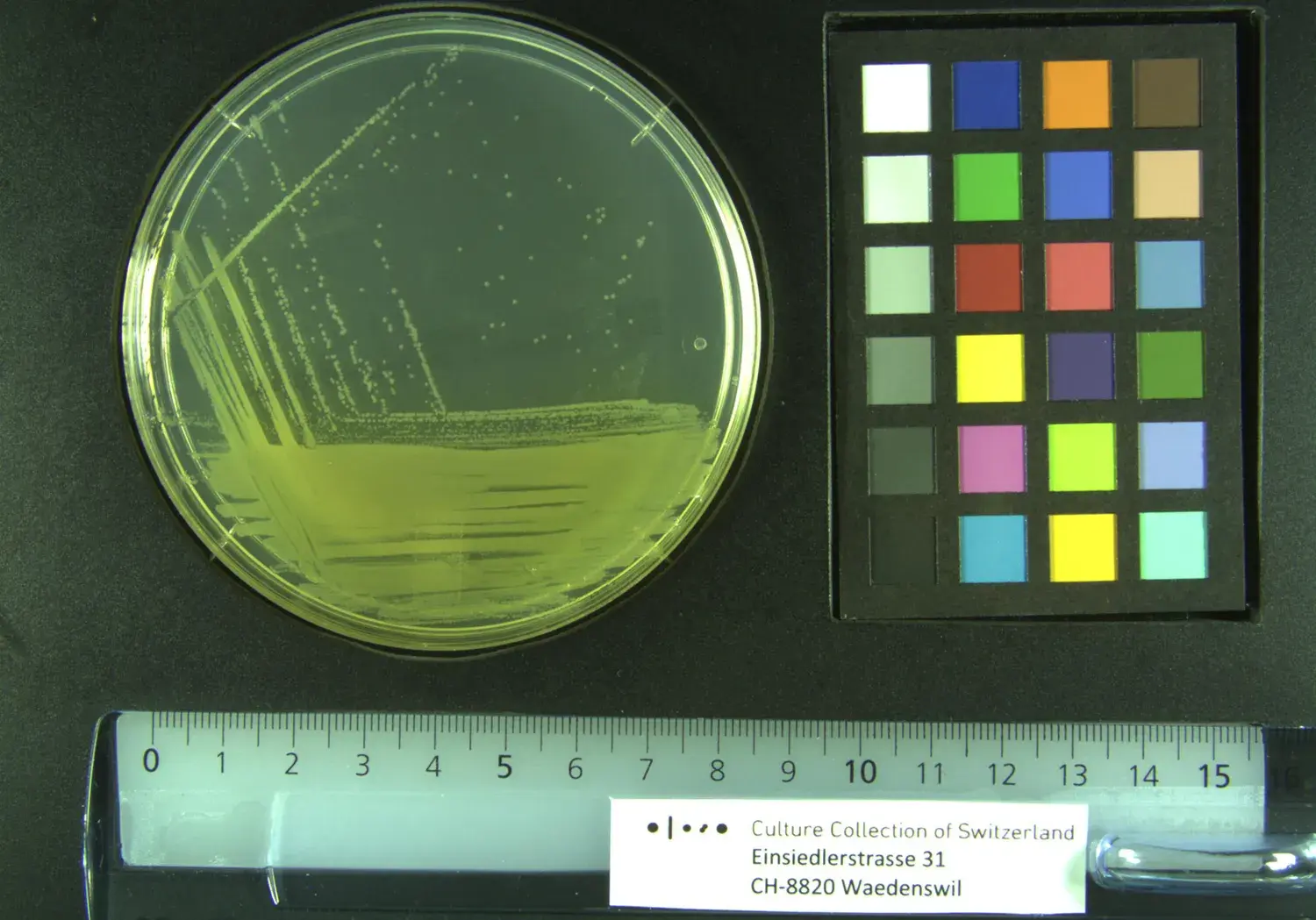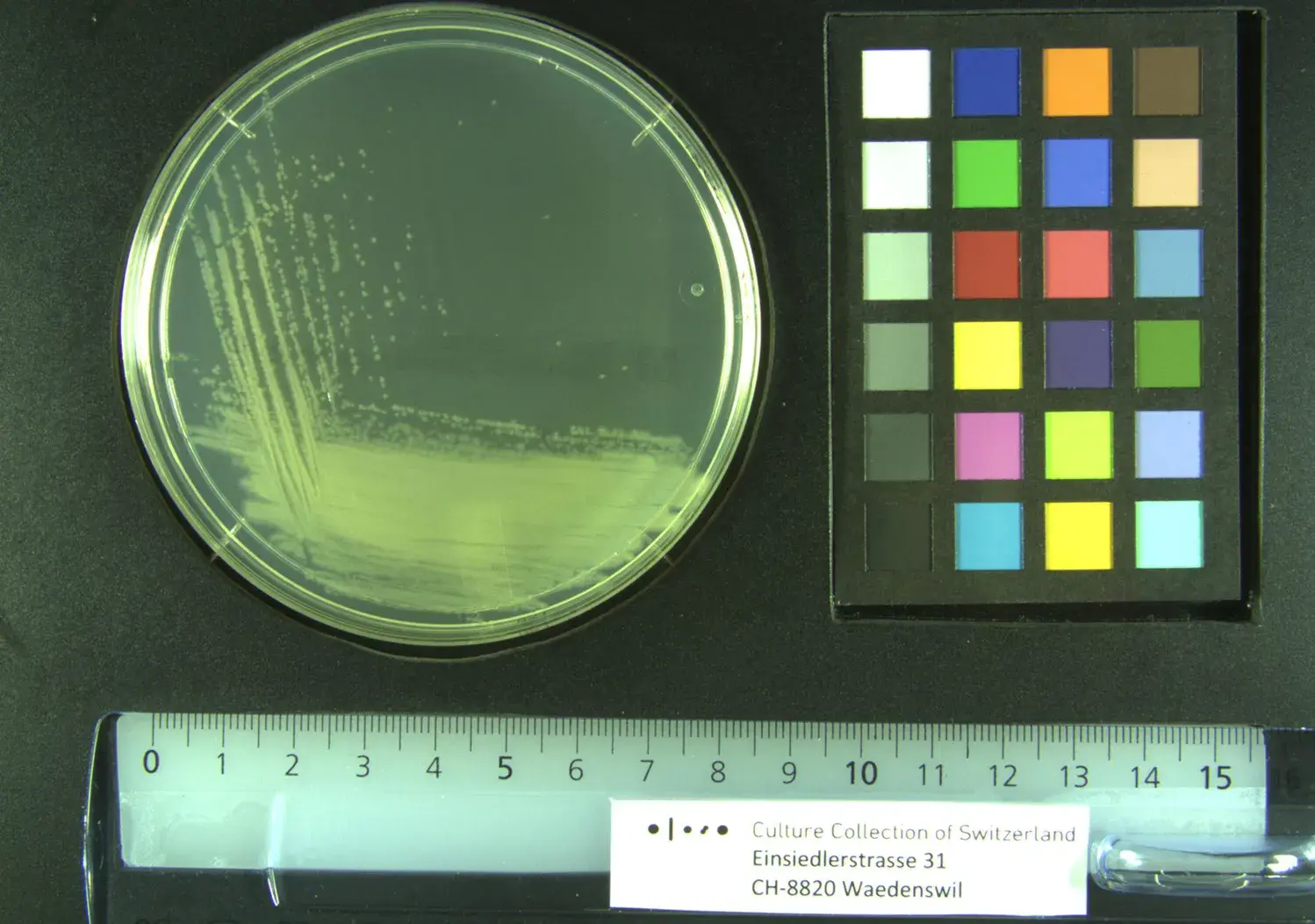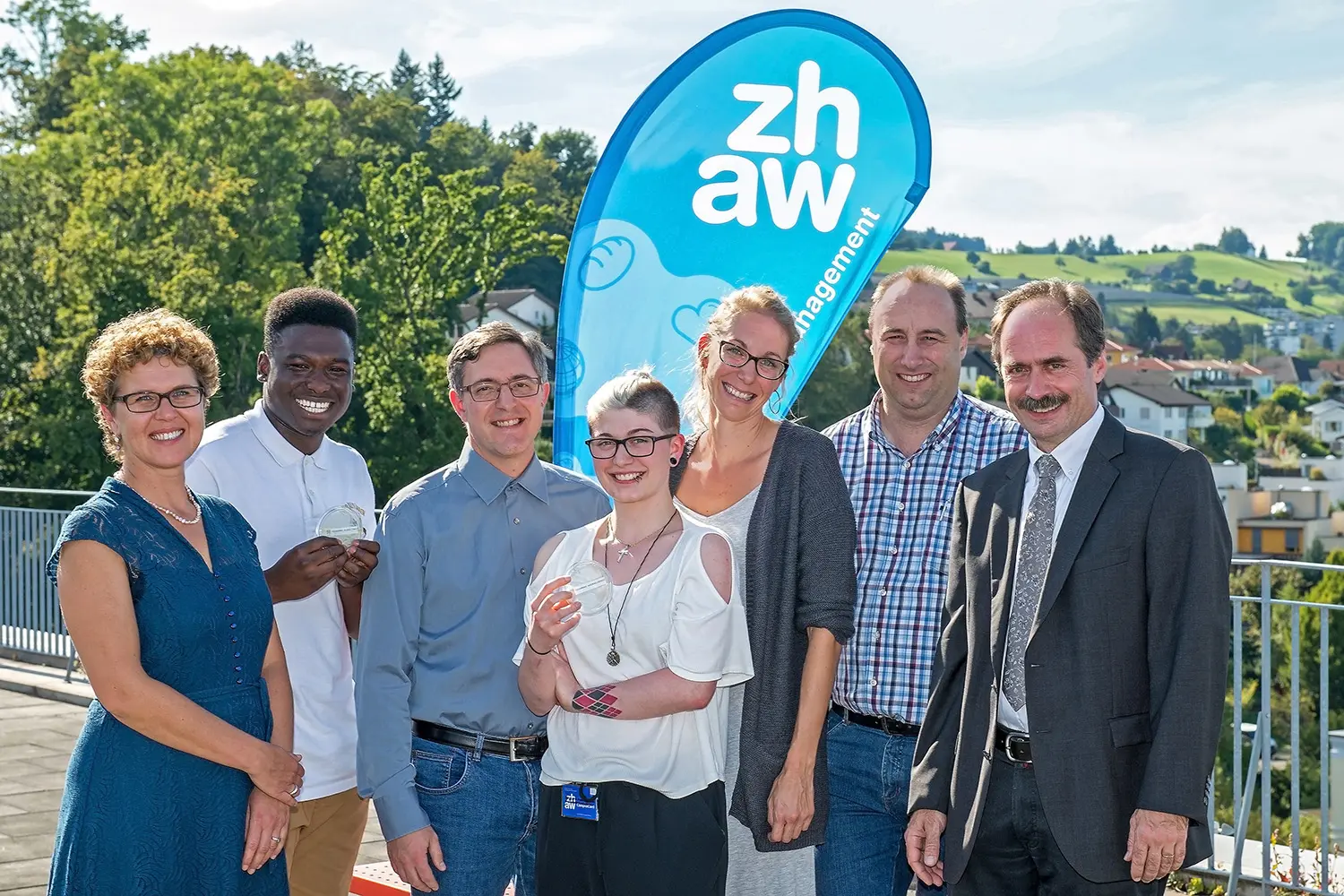ZHAW apprentices discover new species of bacteria
Achieving scientific recognition as an apprentice – Michael Opoku and Tara Picozzi have accomplished this rare feat. The two laboratory technician apprentices at the ZHAW in Wädenswil have discovered two previously unknown bacterial species in soil samples. Their discoveries have now been published in an internationally renowned scientific journal.
During their professional training, biology lab technicians learn to identify species. The aim is to become familiar with and understand various analytical methods and processes. In summer 2014, the apprentices took soil samples in a forest near the Reidbach Campus in Wädenswil. From these, bacteria were isolated and five of them characterised as members of the Pseudomonadaceae family by microbiological analyses. An examination of the isolated bacteria by ZHAW expert David Frasson from the Centre of Molecular Biology and Microbiology revealed that two of the isolates could genetically represent new bacterial species. This finding aroused the apprentices’ curiosity and motivated them to investigate further. After biochemical analyses and sequencing of the entire genome of the two bacterial isolates, it became clear in early 2015 that the prospective lab technicians had discovered two new species of bacteria. They were named after the Reidholz forest in Wädenswil, where they were found: Pseudomonas wadenswilerensis sp. nov. and Pseudomonas reidholzensis sp. nov.
Published in a renowned international science journal
The apprentices’ discovery and their immense dedication spurred the involved ZHAW researchers to write a scientific paper. “It is rather unusual for apprentices to be listed as authors in scientific publications. But as researchers, we felt it was important to acknowledge the apprentices in this way”, says David Frasson, one of the two main authors. The paper was submitted to the renowned International Journal of Systematic and Evolutionary Microbiology. The efforts were rewarded when the paper was accepted in April 2017 and then published in the journal’s August issue.
The two new species of bacteria are stored and can be acquired at the national Culture Collection of Switzerland (CCOS) in Wädenswil, which is a ZHAW spin-off company. There have already been enquiries from other countries, for instance from the Institut Pasteur in Paris, an internationally leading basic research centre. At the ZHAW, research will continue in order to further characterise the two bacterial species isolated from the forest soil and to identify potential areas of application.
Vocational education combines research and practice
Urs Hilber, Dean of the ZHAW School of Life Sciences and Facility Management in Wädenswil and a molecular biologist himself, is delighted by this success. “Colleagues from the vocational education programme and from the disciplines of genetics and microbiology have promoted this project together with the apprentices. I’m very happy about this collaboration. It shows, on the one hand, that we have state-of-the-art facilities which made these analyses and procedures possible in the first place. On the other hand, it shows that it takes everyone, from the apprentice to the dean, for a project like this to be realised and published, and that you don’t have to study for a degree in order to combine research and practice.”
The two former apprentices are proud of their achievement. “Neither of us would have thought at the start of our training that we would end up as authors on a scientific paper”, says Tara Picozzi. She is currently employed at the Institute of Chemistry and Biological Chemistry at the ZHAW in Wädenswil. Michael Opoku is currently pursuing a professional baccalaureate in Zurich and plans to pursue university studies afterwards.
Apprentices at the ZHAW in Wädenswil
Each year, the ZHAW in Wädenswil offers two apprenticeship positions to train laboratory technicians (“EFZ”, Federal VET Diploma) specialising in biology or chemistry. Moreover, there is one apprenticeship position in facility management each year. Michael Opoku was one of the first two apprentices to start training as a laboratory technician specialising in biology at the ZHAW in Wädenswil in 2013. Tara Picozzi, who also trained as a laboratory technician specialising in biology, started in 2014. Both completed their apprenticeships successfully.
Currently there are eight apprentices and about 1500 students at the ZHAW School of Life Sciences and Facility Management in Wädenswil.
Contacts
David Frasson, Institute of Chemistry and Biological Chemistry, ZHAW, 058 934 57 98, david.frasson@zhaw.ch
Cornelia Sidler, Communication, ZHAW School of Life Sciences and Facility Management, 058 934 53 66, cornelia.sidler@zhaw.ch



